Getting tractor financing with bad credit score can feel like an uphill battle, but don’t worry—you’ve got options! Whether you’re looking for personal loans, equipment financing, or other lending options, this guide will walk you through everything you need to know to secure a tractor loan, even if your credit score isn’t where you want it to be.
Tractor Financing with Bad Credit
First, let’s clear something up: bad credit doesn’t mean you can’t get financing for your tractor. In fact, several lenders specialize in offering loans to people with less-than-ideal credit. Whether you’re a farmer looking for farm equipment or a construction worker seeking quick access to heavy equipment financing, there’s usually an option for you.

- Amount = $5,000 to $500,000
- Loan Term = 4 to 24 months
- Interest Rate = 1.11%
4.8
editorial team. We score based on factors
that are helpful for consumers, such as
how it affects credit scores, the rates and
fees charged, the customer experience,
and responsible lending practices.
- Min. Amount = $10,000
- Max Amount = $500,000
- APR = Factor rate starting at 1.11%
4.8
editorial team. We score based on factors
that are helpful for consumers, such as
how it affects credit scores, the rates and
fees charged, the customer experience,
and responsible lending practices.
Best for large business loans

- Loan Amount = $25,000 - $3,000,000
- $10,000 in Monthly Rev
- No minimum credit score requirement
4.9
editorial team. We score based on factors
that are helpful for consumers, such as
how it affects credit scores, the rates and
fees charged, the customer experience,
and responsible lending practices.
Best for large business loans

- Min Amount = $5,000 - 1,500,000
- APR range Not disclosed
- Minimum Credit Score 570
4.7
editorial team. We score based on factors
that are helpful for consumers, such as
how it affects credit scores, the rates and
fees charged, the customer experience,
and responsible lending practices.
Best for Small business loans

- Min Credit Score = 620
- Loan Amount = $10K-$5M
- Term = 6 months - 10 years
- APR = Variable
4.8
editorial team. We score based on factors
that are helpful for consumers, such as
how it affects credit scores, the rates and
fees charged, the customer experience,
and responsible lending practices.

- Check Your Eligibility
- Get $10K to $2M
- 24/7 Support
4.8
editorial team. We score based on factors
that are helpful for consumers, such as
how it affects credit scores, the rates and
fees charged, the customer experience,
and responsible lending practices.

- Amount = $10,000 to $1,000,000
- Factor Rate = Starting at 1.24
- Term = 2 to 12 months
4.7
editorial team. We score based on factors
that are helpful for consumers, such as
how it affects credit scores, the rates and
fees charged, the customer experience,
and responsible lending practices.
What Is Tractor Financing?
Tractor financing allows individuals or businesses to purchase a tractor through various lending and equipment financing options. Whether you’re financing through a bank, a financial institution, or a specialized lender, the aim is to spread out the cost of the equipment over time via monthly payments. In most cases, this type of financing comes in the form of equipment loans or equipment leasing.
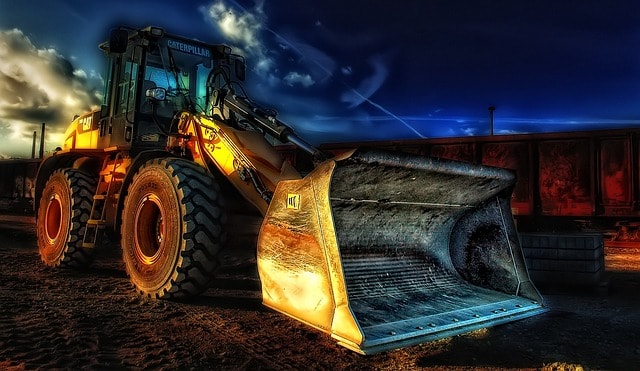
Types of Financing for Bad Credit
There are multiple options available for individuals or businesses with bad credit to finance a tractor. Here’s a breakdown of the most common types:
1. Equipment Loans
Equipment loans are one of the most popular financing options for tractors. These loans allow you to buy the tractor upfront and then pay it off over time. With bad credit, you might face higher interest rates, but equipment loans remain a viable option. Some lenders even specialize in offering equipment loans to those with bad credit.
2. Equipment Leasing
Equipment leasing is another way to acquire a tractor. Rather than owning the tractor outright, you lease it for a period. This can be a good option if you need the tractor for short-term projects. Leasing often requires lower monthly payments than loans, making it an attractive option if cash flow is tight.
3. Secured Loans
Secured loans are backed by collateral, which can include the tractor itself. These loans often come with lower interest rates because the lender has the security of repossessing the equipment if you default. However, this also means that missing payments could cost you the tractor.
4. Business Loans
If you’re financing the tractor for your farm or construction business, you can explore business and best equipment loans here. Many small business owners opt for business or construction equipment loans to purchase tractors, as these loans are designed to meet the needs of growing businesses.
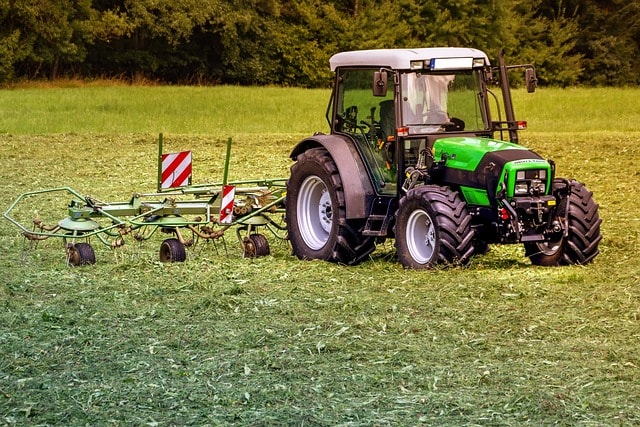
Related: Secrets to Zero Down Bad Credit Car Loans: Is It Really Possible?
How to Get Tractor Financing with Bad Credit
Now that we’ve covered the types of financing available, let’s explore how you can secure tractor financing with a poor credit score.
1. Check Your Credit Score
Before applying for a loan, it’s essential to know where your credit stands. The minimum credit score needed for tractor financing varies from lender to loan specialist to lender personal loan to, but generally, a score below 600 is considered bad credit. Don’t worry if your credit score is low—there are still options available, though you may need to pay higher interest rates.
2. Consider a Higher Down Payment
A larger down payment can help offset the risk for lenders, making them more likely to approve your application. For example, if you can cover 20% or more of the tractor’s cost upfront, you may be able to secure better terms on your loan, even with bad credit.
3. Find the Right Lender
Not all lenders are the same when it comes to tractor financing for bad credit. Look for lenders specializing in bad credit equipment loans or online lenders who can offer loans with more flexible terms. Companies like Balboa Capital, National Funding, and Deere Financial are known to provide financing for tractors, even if you don’t have a perfect credit history.
4. Gather Business Bank Statements
If you’re applying for a business loan, having up-to-date business bank statements can help. These documents show lenders that your business is generating enough cash flow to cover the monthly payments, which might outweigh a no payment history or poor credit score.
5. Improve Your Credit History
While you might need the tractor immediately, working on improving your credit and payment history over time can help you secure better financing terms in the future. Simple steps like paying down existing debt and ensuring timely payments can boost your credit score over time.
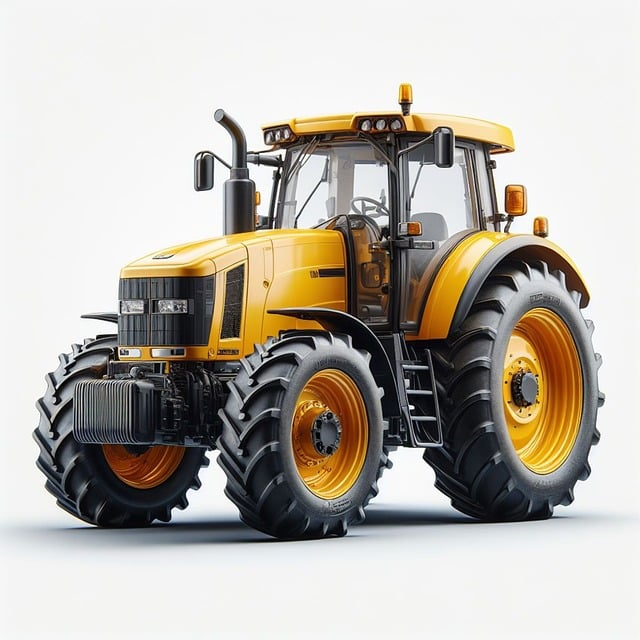
Common Lenders for Tractor Financing with Bad Credit
Here’s a look at business information for some popular finance companies that can provide equipment loans and financing options for people with bad credit.
Balboa Capital is one of the best equipment loans and financing companies. It caters to individuals with bad credit, offers flexible loan terms, and specializes in heavy equipment financing and loans for businesses of all sizes.
If you’re looking to finance a John Deere tractor, Deere Financial is a solid option. They offer competitive rates and financing options for farmers who rely on Deere tractors. However, you’ll need to meet a minimum credit score to qualify.
National Funding provides financing for bad credit and is well-known for helping small business owners secure loans for heavy equipment. They offer a quick online application and process and a variety of financing options.

Tractor Loan Terms to Consider
When seeking tractor financing, the loan terms are crucial. Make sure to understand the following key factors before signing any agreement:
With bad credit, you’re likely to pay higher interest rates than someone with a good credit score. While this may increase your monthly payment, comparing rates across different lenders can help you find the best deal.
The loan amount depends on the cost of the tractor and your ability to make a down payment. Be sure to borrow only what you need and can reasonably afford to repay.
The loan term refers to how long you’ll be making monthly payments. Shorter loan terms mean higher monthly payments but less interest paid over time, while longer loan terms spread the cost but come with more interest.
Tips for Improving Your Chances of Approval
Even with bad credit, there are steps you can take to improve your chances of securing tractor financing:
- Offer a Larger Down Payment: This shows the lender you’re serious and helps reduce their risk.
- Consider Co-Signers: Having someone with good credit co-sign the loan can improve your chances of approval.
- Explore Government-Backed Loans: Programs offered by the United States Department of Agriculture (USDA) provide farm loans with more lenient credit requirements.

Is Tractor Financing Worth It with Bad Credit?
While financing with bad credit comes with higher interest rates and stricter loan terms, it’s often worth it if you need the new equipment to grow your business or farm. A tractor is a significant investment, and getting the financing you need can help you maintain cash flow while acquiring essential farming equipment.
Tractor financing with bad credit may seem daunting, but with the right information and careful planning, it’s entirely achievable. Whether you opt for equipment loans, leasing, or secured loans, there are many ways to finance the tractor you need. Don’t let bad credit hold you back—explore your options and find the solution that works best for you.
Related: Bad Credit Auto Loans Guaranteed Approval for Easy Financing
How to Choose the Right Tractor Financing Option
When it comes to finding the best tractor financing option, you need to assess all available alternatives carefully. Just because you have bad credit doesn’t mean you have to settle for the first loan offer you get. Here are a few tips on how to make sure you choose the right financing option:
1. Compare Interest Rates
Interest rates play a huge role in how much your equipment loan will cost you over time. With bad credit, interest rates will be higher, but that doesn’t mean you can’t find a good deal. It’s important to shop around, compare multiple lenders, and look at their interest rates for the best equipment financing around.
2. Look at the Loan Terms
The loan term is how long you have to repay your tractor loan. A shorter term means higher monthly payments but less total interest paid. A longer term will give you smaller monthly payments but might end up costing more over time. Choose a term that fits your monthly budget but also keeps interest payments manageable.
3. Consider Flexible Payment Options
Some lenders offer more flexibility when it comes to making payments. For example, you might find a lender who offers seasonal payments, which could be useful if your farming business earns more income during specific months. Make sure the payment structure works with your cash flow.
4. Check for Prepayment Penalties
Some lenders charge prepayment penalties if you try to pay off your loan early. This is something to watch out for, especially if you plan on paying your loan back faster than expected. Always read the fine print!

Why You Need a Good Down Payment
A down payment can make all the difference in securing a tractor loan, especially with bad credit. The bigger your down payment, the less you’ll need to borrow. This not only lowers your monthly payments but also reduces the lender’s risk. Lenders are more likely to approve your loan if they see that you can pay a significant portion upfront.
If possible, aim for a down payment of 20% or more. This will not only improve your chances of approval but might also help you get a better interest rate.
What Happens If You Miss a Payment?
Missing a payment on your tractor loan can have serious consequences, especially with bad credit. Since many equipment loans are secured loans, missing payments could result in the lender repossessing your tractor. This means that if you fall behind on payments, the lender can take back the equipment loan you purchased.
Additionally, missed payments can hurt your credit score even more, making it harder to get financing in the future. If you’re struggling to make a payment, it’s always best to contact your lender as soon as possible to see if they offer any payment relief options.
How to Improve Your Chances of Approval with Bad Credit
Even with bad credit, there are several things you can do to boost your chances of getting approved for a tractor loan.
1. Improve Your Credit Score Before Applying
While you may need the loan immediately, if you can wait a few months, improving your credit score can open up better financing opportunities. Start by paying down existing debt and making sure you’re not missing any current payments. Also, check your credit report for any errors that could be bringing your score down.
2. Get a Co-Signer
If you have a trusted friend or family member with good credit, you can ask them to do credit check and co-sign your loan. This will make the lender more likely to do credit check and approve your application, as the co-signer is essentially taking on responsibility for the loan if you can’t make the payments.
3. Opt for a Secured Loan
Secured loans are easier to get approved for because they come with collateral. In this case, the tractor itself serves as the collateral, which makes the loan less risky for the lender. Just keep in mind that if you default on the loan, the lender can take the tractor back.
4. Provide Strong Financial Documents
If you’re getting a loan for business purposes, providing strong financial documents can help boost your chances. For a business day for example, business bank statements showing steady income can demonstrate to the lender that you have the cash flow needed to make the monthly payments.


- Amount = $5,000 to $500,000
- Loan Term = 4 to 24 months
- Interest Rate = 1.11%
4.8
editorial team. We score based on factors
that are helpful for consumers, such as
how it affects credit scores, the rates and
fees charged, the customer experience,
and responsible lending practices.
- Min. Amount = $10,000
- Max Amount = $500,000
- APR = Factor rate starting at 1.11%
4.8
editorial team. We score based on factors
that are helpful for consumers, such as
how it affects credit scores, the rates and
fees charged, the customer experience,
and responsible lending practices.
Best for large business loans

- Loan Amount = $25,000 - $3,000,000
- $10,000 in Monthly Rev
- No minimum credit score requirement
4.9
editorial team. We score based on factors
that are helpful for consumers, such as
how it affects credit scores, the rates and
fees charged, the customer experience,
and responsible lending practices.
Best for large business loans

- Min Amount = $5,000 - 1,500,000
- APR range Not disclosed
- Minimum Credit Score 570
4.7
editorial team. We score based on factors
that are helpful for consumers, such as
how it affects credit scores, the rates and
fees charged, the customer experience,
and responsible lending practices.
Best for Small business loans

- Min Credit Score = 620
- Loan Amount = $10K-$5M
- Term = 6 months - 10 years
- APR = Variable
4.8
editorial team. We score based on factors
that are helpful for consumers, such as
how it affects credit scores, the rates and
fees charged, the customer experience,
and responsible lending practices.

- Check Your Eligibility
- Get $10K to $2M
- 24/7 Support
4.8
editorial team. We score based on factors
that are helpful for consumers, such as
how it affects credit scores, the rates and
fees charged, the customer experience,
and responsible lending practices.

- Amount = $10,000 to $1,000,000
- Factor Rate = Starting at 1.24
- Term = 2 to 12 months
4.7
editorial team. We score based on factors
that are helpful for consumers, such as
how it affects credit scores, the rates and
fees charged, the customer experience,
and responsible lending practices.
How Financing Can Help Your Business Grow
For many farmers and business owners, a tractor is not just a piece of equipment—it’s a necessity for growing your operation. Securing financing, even with bad credit, can make a world of difference in how quickly your small business line up can expand.
Having a tractor means you can complete tasks faster and more efficiently, whether you’re farming or working in construction. This increased efficiency can lead to more projects completed or higher crop yields, which can directly impact your bottom line.
With a tractor, you can take on larger and more complex jobs that were previously out of reach. For example, farmers can manage larger plots of land, while construction companies can tackle bigger projects with heavy equipment.
By financing equipment quote as a tractor rather than paying for it all upfront, you can free up cash flow for other important business needs. Whether it’s buying additional supplies, hiring more employees, a business equipment loan or investing in marketing, having extra cash on hand can give your business the flexibility it needs to grow.
How to Avoid High Fees and Hidden Costs
When financing a tractor with bad credit, it’s essential to be aware of any high fees or hidden costs that could come with the loan. Here’s what to look for:
1. Origination Fees
Some lenders charge origination fees, which are upfront costs just for processing the loan. These can range from 1% to 5% of the loan amount. Make sure to factor these fees into the total cost of the loan.
2. Prepayment Penalties
As mentioned earlier, some lenders charge penalties for paying off a loan early. These fees can negate any savings you might have gained from paying the loan off ahead of schedule, so it’s important to ask about prepayment penalties upfront.
3. Higher Interest Rates
With bad credit, you’re likely to face higher interest rates, which can significantly increase the total cost of the loan over time. It’s important to compare rates from different lenders to make sure you’re not paying more than you have to.
4. Additional Fees for Late Payments
Late payment fees can add up quickly if you miss any monthly payments. Make sure you understand how much these fees are and what the grace period is before a late payment is considered.
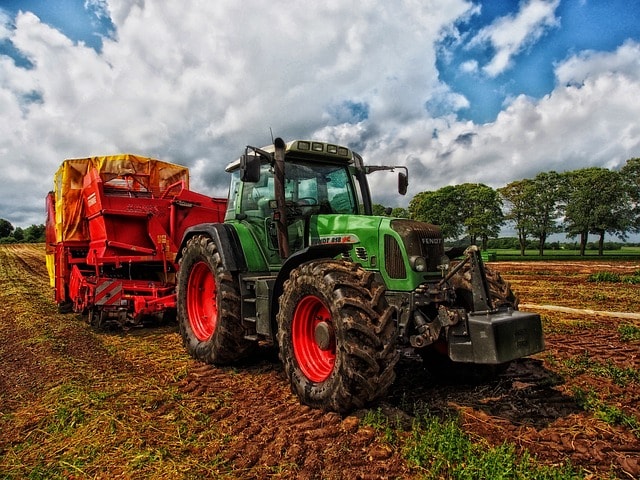
Is It Better to Buy New or Used Tractors?
One common question people ask when financing a tractor is whether it’s better to buy a new or used one. Both options have pros and cons, so here’s a quick breakdown to help you decide:
1. New Tractors
- Pros: New tractors come with warranties and are less likely to need immediate repairs. They also tend to have the latest technology, which can improve efficiency.
- Cons: New tractors are much more expensive upfront, which means larger loans and higher monthly payments.
2. Used Tractors
- Pros: Used tractors are more affordable and may allow you to secure financing more easily since you’ll need to borrow less.
- Cons: Used tractors might require more maintenance and repairs, which can add to the overall cost. Additionally, they might not come with warranties, leaving you responsible for any issues that arise.
Alternative Financing Options for Bad Credit
While traditional tractor loans are common, there are other financing options to consider if your credit is less than perfect.
1. Equipment Lease-to-Own
If you’re not ready to commit to buying a tractor outright, you can opt for a lease-to-own option. This lets you lease the tractor with the option to buy it at the end of the lease term. It’s a good choice if you’re uncertain about long-term ownership but still need the equipment.
2. Government Programs
The United States Department of Agriculture (USDA) offers farm loans specifically designed for people who may not qualify for traditional financing due to bad credit. These loans have more flexible terms and may be worth exploring if you’re in the agriculture business.
3. Credit Unions
Some credit unions offer equipment loans at lower interest rates compared to traditional banks. Credit union unions tend to be more flexible and community-focused, making them a good option for people with bad credit.
4. Peer-to-Peer Lending
Peer-to-peer lending platforms allow individuals to borrow directly from investors. While interest rates may vary, this can be a good option if you’re having trouble getting approved for traditional loans.
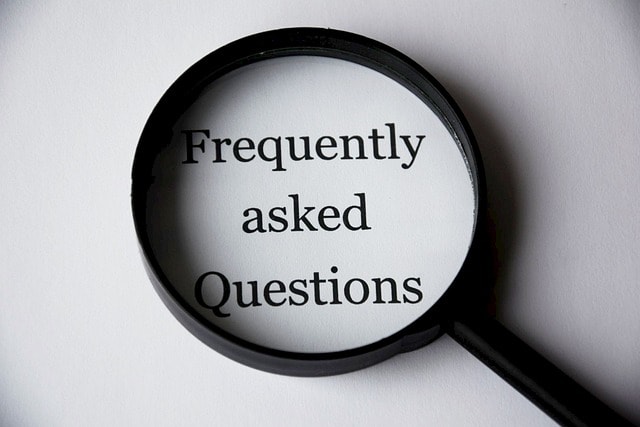
Frequently Asked Questions
What is the lowest credit score to buy a tractor?
The minimum credit score for tractor financing varies, but most lenders require a score of at least 600. However, some lenders offer financing for lower credit scores with higher interest rates.
What credit score do I need to finance a Kubota tractor?
Kubota usually requires a minimum credit score of around 650 for financing, though options are available for lower credit scores too.
How hard is it to get approved for a tractor?
It depends on your credit score, down payment, and lender. If you have bad credit, providing a larger down payment can improve your chances.
What credit score do you need for personal loans and equipment financing?
For most equipment financing, a credit score of at least 600 is recommended, but there are lenders who cater to bad credit borrowers.
Can equipment be used as collateral for a personal or business loan??
Yes, farm equipment loans are typically secured loans, meaning the tractor itself serves as collateral.

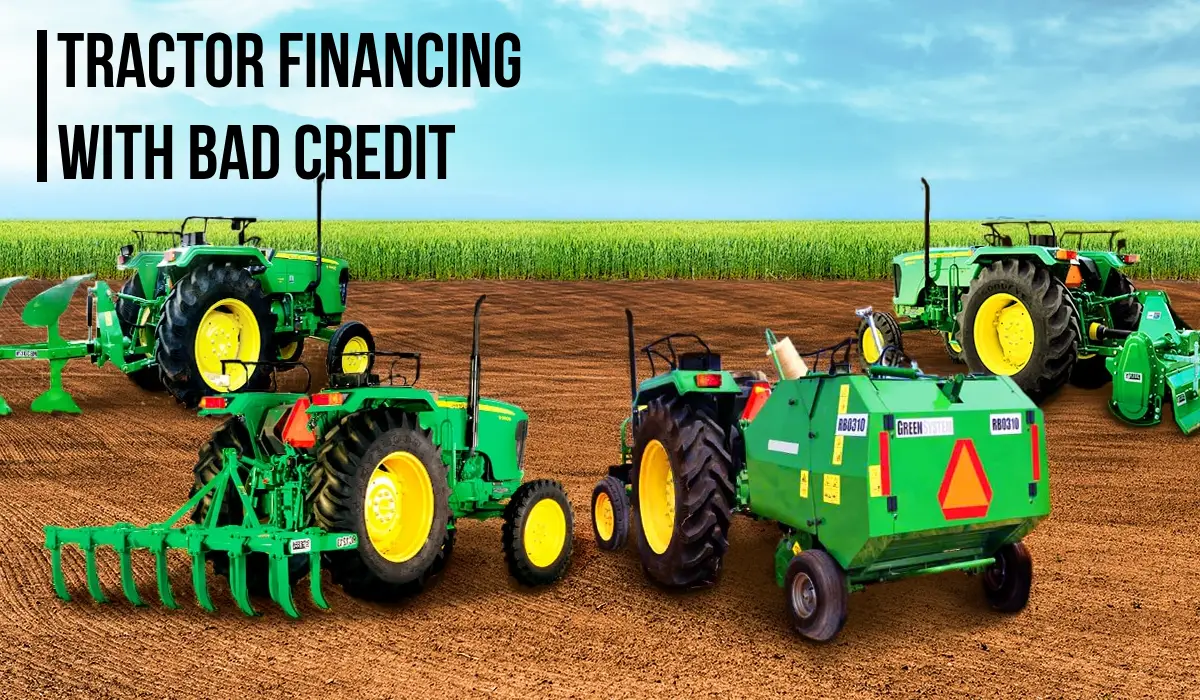
 Read More
Read More 





One Response